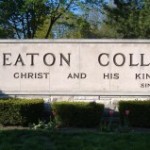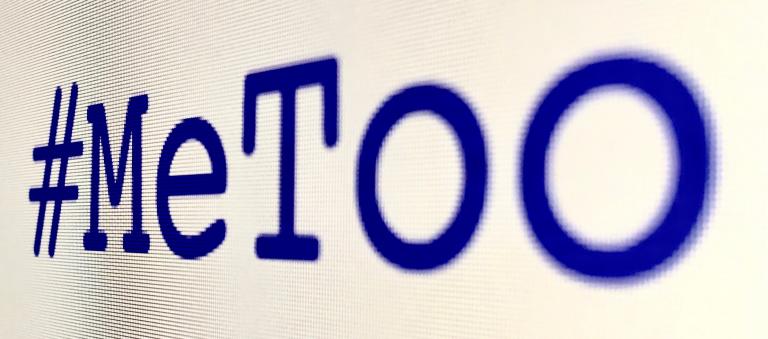*First published at Window on Religion
Like many of you, I’ve been following the Larycia Hawkins controversy very closely. Hawkins is the tenured professor at Wheaton College who decided to wear a hijab during the season of Advent as a display of solidarity with Muslims. During Dr. Hawkins’ time of solidarity, she publicly declared on her Facebook page that she viewed Muslims as sisters and brothers who have been “formed of the same primordial clay.” She also described them as “people of the book” who worship the same God. (“People of the book” is a quranic term of endearment commonly used by Muslims to express intentions of peace towards Jewish and Christian people of faith.)
Upon learning of this statement, officials at Wheaton College placed Dr. Hawkins on administrative leave. Negotiations later ensued which involved Wheaton officials recommending that Hawkins submit to “two years of multi-layered, ongoing conversation about the theological implications of [her] Facebook post and actions in wearing the hijab. For those two years, tenure would be revoked and restoration of tenure an open question at the conclusion of that period.”
This debacle has caused me to feel a deeper than usual sense of sadness about the crisis of interfaith disunity in our country. While following the headlines, I’ve thought about my own Muslim friends and acquaintances who experience discrimination and ostracism, and I’ve thought on how we are all so inundated by negative stories about Muslims in the media that many Americans are unable to see Islam as a religion of peace. I’ve thought about the climate of political discourse in this country, which tolerates bigoted statements against Muslims and allows their removal from presidential campaign rallies.
When considering these things, I am unable to escape the degree to which we in Christianity perpetuate interfaith disunity from within our own organizations.
Christianity largely sees itself as a religion with a mission to convert the “unsaved” to our way of seeing God, Jesus and the world. Most of us are trained to think that any interaction with an avowed non-Christian must involve or lead to evangelizing. We are taught to see our non-Christian friends—including those of other religions—as a mission field. They’re not people from whom we should learn because they don’t have Our Truth™; instead, they are prime candidates for “Bring An Unsaved Friend To Church Day”. We’re not taught that we should pray to God for the grace to understand why people choose religions other than Christianity; instead, we’re taught that we should pray for God to change them into what we are.
The implications of this kind of thinking are vast and catastrophic, particularly in a country where what we need most are interfaith conversations between humble people of faith intent upon establishing common ground. Sadly, it is impossible to establish peaceful relations if we’re taught that we have no humanitarian responsibility to our neighbors unless we’re trying to convert them. One cannot even begin the pursuit of genuine peacetalks under these kinds of conditions.
Wheaton sees itself as a college with a mission to prepare its students for faithful Christian living, and even ministry if the student should feel moved to pursue such a calling. However, the college has neglected to see that the greatest ministries we can offer to our divided world are those demonstrated by Jesus himself—the ministries of peacemaking and reconciliation; the ministry of the prophetic gifting which calls us to challenge the status quo; the ministry of advocacy for the oppressed; the ministry of friendship which calls us to say to the social outcast that we see the depth and worth of their humanity; the ministry of love, which transcends fear and dogma.
Many expressions of Christianity have become so limited by their missiological and ministerial paradigms that they have missed the mandate to love our neighbors. Blinded by the zealous urge to tell others their version(s) of the truth about Jesus, some Christian sisters and brothers consistently miss out on opportunities to live as He did. In our quest to ensure a future for the church, we naively repeat the sins of the Christians before us who suppressed their dissidents and oppressed the people they didn’t understand.
Wheaton college has chosen dogma over the real needs of its societal context—a mistake that Jesus decried over and over again. My prayer is that they will see how profoundly they’ve missed the opportunity to live as God’s children ought to live in our world.
Crystal St. Marie Lewis describes herself as “incurably curious,” and says curiosity is in itself a calling, not a curse. Her interests include studying the intersections of religion, theology, human rights, social justice, secularization and the world in which we live. She is also the author of “By the Waters of Babylon: A Collection of Doubter’s Devotions” Feel free to follow Crystal on Twitter and Facebook.
Donate to the Work of R3
Like the work we do at Rhetoric Race and Religion? Please consider helping us continue to do this work. All donations are tax-deductible through Gifts of Life Ministries/G’Life Outreach, a 501(c)(3) tax exempt organization, and our fiscal sponsor. Any donation helps. Just click here to support our work.













